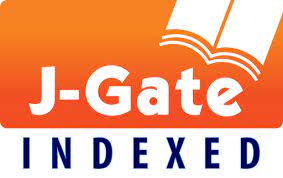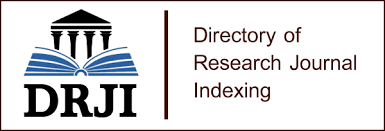THE IMPACT OF GOVERNMENT ROLE ON THE GROWTH OF E-COMMERCE SITES IN BANGLADESH
Abstract
This study examines the impact of government role on the growth of e-commerce sites in Bangladesh. E-commerce is the process of electronic transactions on the internet. It is known to all because of the dynamic nature of trade. Today e-commerce is positively changing the traditional commerce and trade sector by making transactions and product delivery easier.
The results show that there is a very good positive strength and significant relationship between all the independent variables to the growth of e-commerce sites. Also, the correlation results showed that the relationship of all the independent to dependent variables is significant and positive.
References
AlGhamdi, R., et al. (2011). Factors influencing Saudi customers’ decisions to purchase from online retailers in Saudi Arabia: a quantitative analysis. IADIS International Conference e-commerce 2011.
Amadeo, K. (2011). "Government Subsidies (Farm, Oil, Export."
Christian Mbayo Kabango, A. R. A. (2011). "Factors influencing e-commerce development: Implications
for the developing countries."
Eid, M. I. (2011). "DETERMINANTS OF E-COMMERCE CUSTOMER SATISFACTION, TRUST, AND
LOYALTY IN SAUDI ARABIA ".
Johnson-George, C., Swap, Walter C. (1982). "Measurement of specific interpersonal trust: Construction and validation of a scale to assess trust in a specific other.".
Karunasena, K. and H. Deng (2012). "Critical factors for evaluating the public value of e-government in Sri Lanka." Government Information Quarterly29(1): 76-84.
Kee, H. W. and R. E. Knox (1970). "Conceptual and methodological considerations in the study of trust and suspicion." Journal of conflict resolution14(3): 357-366.
Licker, A. M. P. S. (2005). "Licker, P.S.: eCommerce adoption in developing countries: a model and instrument. Information and Management ".
Miyazaki, A. D. and A. Fernandez (2001). "Consumer perceptions of privacy and security risks for online shopping." Journal of Consumer affairs35(1): 27-44.
Moon, M. J. (2002). "The evolution of eâ€government among municipalities: rhetoric or reality?" Public administration review62(4): 424-433.
Park, C.-H. and Y.-G. Kim (2003). "Identifying key factors affecting consumer purchase behavior in an online shopping context." International journal of retail & distribution management31(1): 16-29.
Pouloudi, A. P. N. (2000). "The Government's Role in Improving Electronic Commerce Adoption."
Roscoe, J. T. (1975). Fundamental research statistics for the behavioral sciences [by] John T. Roscoe.
Sathye, M. (1999). "Adoption of Internet banking by Australian consumers: an empirical investigation." International Journal of bank marketing17(7): 324-334.
Suki, N. M. and T. Ramayah (2010). "User acceptance of the e-government services in Malaysia: structural equation modelling approach." Interdisciplinary Journal of Information, Knowledge and Management5: 395-414.
WELLS, D. (2017). "THE ROLE OF GOVERNMENT IN PROMOTING E-COMMERCE."
Additional Files
Published
How to Cite
Issue
Section
License
Copyrights for articles published in Journal of Asian and African Social Science and Humanities are retained by the authors, with first publication rights granted to the journal. The journal/publisher is not responsible for subsequent uses of the work. It is the author's responsibility to bring an infringement action if so desired by the author.
Articles published in Journal of Asian and African Social Science and Humanities are published under the Creative Commons Attribution (CC-BY) license, which permits others to distribute, remix, tweak, and build upon your work as long as they credit you for the original creation.
Â














